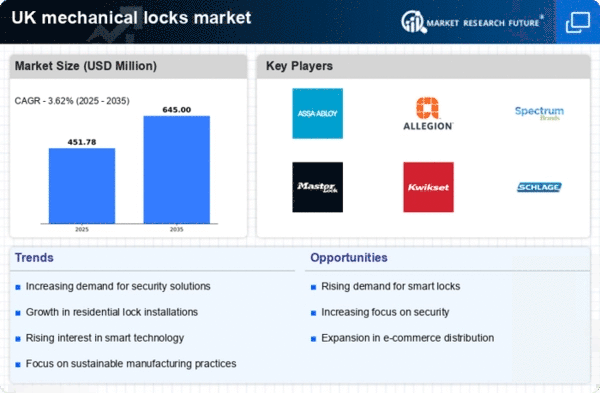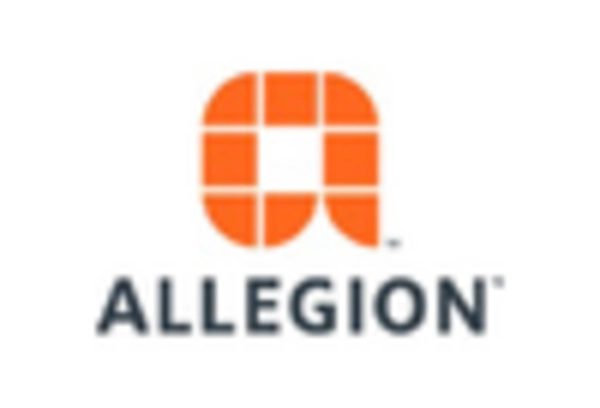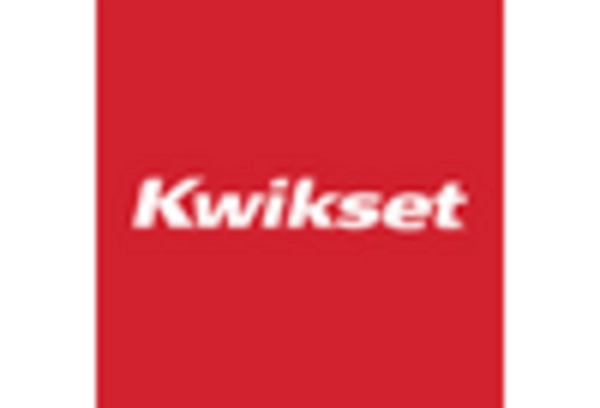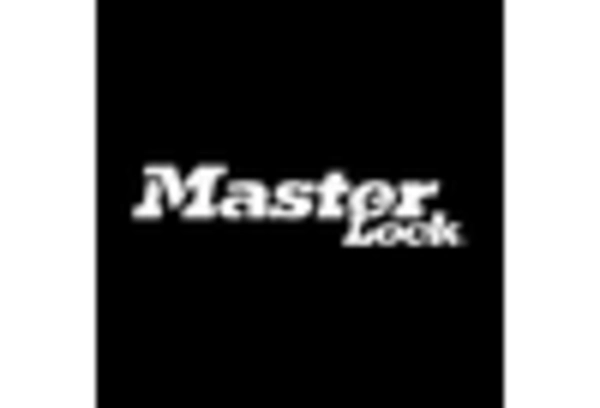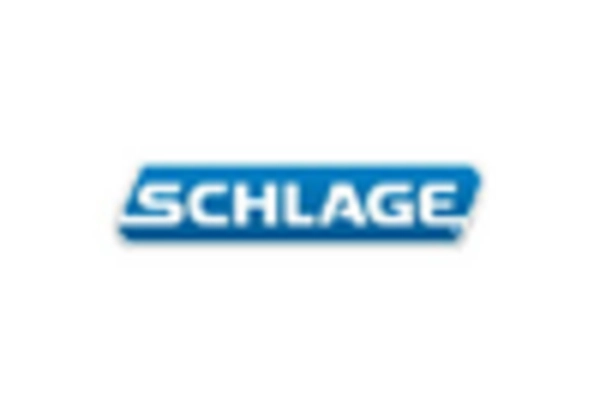Rising Security Concerns
The mechanical locks market is experiencing a notable surge in demand due to escalating security concerns among consumers and businesses alike. With crime rates fluctuating, individuals are increasingly prioritising the safety of their properties. This heightened awareness has led to a significant uptick in the adoption of robust locking mechanisms. In the UK, the market for mechanical locks is projected to grow at a CAGR of approximately 5.2% over the next five years. This growth is indicative of a broader trend where consumers are willing to invest more in high-quality locking solutions to safeguard their assets. The mechanical locks market is thus benefitting from this shift in consumer behaviour, as more people seek reliable and durable security options.
Increased Construction Activities
The mechanical locks market is benefiting from a resurgence in construction activities across the UK. As new residential and commercial projects emerge, the demand for reliable locking systems is on the rise. The construction sector is projected to grow by approximately 4.5% annually, creating a substantial market for mechanical locks. Builders and contractors are increasingly opting for high-quality mechanical locks to ensure the security of newly constructed properties. This trend is indicative of a broader recognition of the importance of security in construction, thereby bolstering the mechanical locks market. As construction activities continue to expand, the demand for mechanical locks is likely to follow suit.
Regulatory Compliance and Standards
The mechanical locks market is significantly influenced by the need for compliance with regulatory standards. In the UK, various regulations govern the security features of locks, particularly in commercial and residential buildings. Compliance with these standards is essential for manufacturers to ensure their products are marketable and safe. The mechanical locks market is adapting to these requirements by developing locks that meet or exceed regulatory benchmarks. This focus on compliance not only enhances consumer trust but also opens up new market opportunities for manufacturers. As regulations evolve, the demand for compliant locking solutions is expected to rise, further propelling market growth.
Technological Advancements in Manufacturing
Advancements in manufacturing technologies are playing a crucial role in shaping the mechanical locks market. Innovations such as precision engineering and the use of advanced materials are enhancing the durability and effectiveness of mechanical locks. The introduction of computer-aided design (CAD) and automated production processes has enabled manufacturers to produce locks that meet stringent quality standards. In the UK, the mechanical locks market is witnessing a transformation as companies invest in state-of-the-art manufacturing techniques. This not only improves product quality but also reduces production costs, allowing for competitive pricing. As a result, consumers are presented with a wider array of options, further driving market growth.
Consumer Preference for Traditional Security Solutions
Despite the rise of digital security options, there remains a strong consumer preference for traditional mechanical locks. Many individuals and businesses in the UK perceive mechanical locks as more reliable and easier to maintain compared to their electronic counterparts. This preference is particularly evident in older properties where traditional aesthetics are valued. The mechanical locks market is capitalising on this trend by offering a diverse range of mechanical locking solutions that cater to various consumer tastes. As a result, the market is expected to maintain steady growth, driven by the enduring appeal of traditional security measures.


